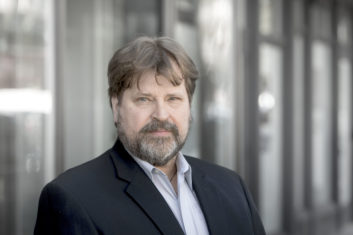The journey of iHeartMedia through protection from its creditors came with the usual lumps; but now that the company has emerged from the process, financial observers say the big firm will be in a much better financial position.
Bankruptcy experts also say the company’s successful reorganization indicates that the radio industry still has financial boosters who believe in the medium.
The company, which will now be controlled by a group of hedge and mutual fund companies, survived reorganization with its top management team intact, observers said. Chairman/CEO Bob Pittman and President/COO/CFO Rich Bressler will stay on. A new board of directors has been appointed, including Pittman and Bressler and the following members: Jay Rasulo, Gary Barber, Brad Gerstner, Sean Mahoney and Kamakshi Sivaramakrishnan, according to a press release on May 1.
“iHeartMedia enters this next phase of growth as a multi-platform audio company with a vastly improved financial profile,” Pittman stated in the release.
The company also owns Premiere Networks, Katz Media Group, RCS, Inside Radio, Total Traffic & Weather Network and Critical Mass Media. It spun off Clear Channel Outdoor Holdings Inc. as part of the reorganization; that billboard subsidiary has become its own independent publicly traded company.
At the time of its Chapter 11 filing in March of 2018 the San Antonio-based company listed $12.3 billion in assets and $20.3 billion in debt, according to paperwork filed with the Securities and Exchange Commission.
iHeartMedia indicated prior to completing its reorganization it could soon launch an initial public offering or IPO. The broadcaster says it plans to use the cash raised by any IPO to reduce debt and fuel growth, according to SEC paperwork, similar to what Cumulus did when it emerged from bankruptcy in 2018, according to observers.
DIGITAL PLAYS

Benjamin Lambiotte, principal in the Washington office of Garvey Schubert Barer, whose practice includes bankruptcy, said iHeartMedia’s SEC filings just prior to leaving bankruptcy indicated the broadcaster will emphasize digital plays, such as podcasting and streaming in the future.
“The strategic vision expressed in the SEC filing is that of a fully-integrated multi-platform audio media company,” Lambiotte said.
The company did not disclose the size of the proposed share offering or estimate what the net proceeds from the sale of Class A common stock would be, nor did it set a price range in its filing with the SEC. A spokesperson declined to comment further on iHeartMedia’s plans.
Lambiotte, commenting about iHeart’s outlook shortly before the announcement, said an IPO would not be “a for-sure thing” since SEC paperwork filed earlier showed iHeartMedia was considering several strategies, including a rare “direct offering,” which would offer for sale to the public only existing shares, similar to what Spotify has done.
[iHeartMedia Nears Exit From Bankruptcy, Plans IPO]
Another observer familiar with the iHeartMedia IPO plans said in April, “When a company announces intentions to file [an IPO] so quickly after emerging from bankruptcy, it’s possible the new debt holders do not have a long-term view of the company and prefer to sell their equity. It’s not a common approach to do an IPO so quickly, but Cumulus did the same thing and it was successful.”
iHeartMedia has 848 broadcast radio stations in 160 U.S. markets and is now the top commercial podcast publisher in the United States, according to recent data from Podtrac, with 148 million monthly downloads and streams.
The company also reports 128 million registered users of its iHeartRadio service and app, which is available on an expansive range of platforms and devices including digital auto dashes, tablets, wearables, smartphones, virtual assistants, televisions and gaming consoles.
“Additionally, we believe we are well-positioned to leverage our iconic brand and enormous reach to benefit from incremental listening growth,” it has told the SEC. “As smart speakers are creating an in-home audio hub that enhances radio’s reach, developing a leadership position in this category has become a key element of our growth strategy. Smart speaker adoption has seen rapid acceleration, with a 26% penetration rate among U.S. adults in 2018.”
EFFICIENT PROCESS

Josh Friedman, global head of restructuring data for Debtwire, a distressed-debt research firm, said in April that iHeartMedia had executed its reorganization efficiently.
“I figured it would be a more drawn-out and complex process, but in the end all of the work they did in the lead-up to the bankruptcy created a positive outcome for the company to move forward,” Friedman said. “Clearly, they have a number of investors who still believe in iHeartMedia and its long-term success.”
The company will still have a large chunk of debt, Friedman said, which leads to the question of whether it cut enough. The balance-sheet restructuring allowed the firm to shed almost $10.4 billion in debt, leaving it with about $5.75 billion on its books.
“We’ve seen a lot of companies come back to bankruptcy, but in order for the bankruptcy judge to OK iHeartMedia’s reorganization plan, the company had to prove that it had a feasible path going forward,” he said.
Friedman, who provides data and analysis on debt markets to clients, said iHeartMedia’s return to financial stability is a “positive for the radio industry” and a clear indication “there are lots of people who still believe in the radio industry.”
[iHeart Names Post-Bankruptcy Board]
Jeff Tarkenton, an attorney in the bankruptcy and restructuring group at Womble Bond Dickinson (US) LLP, said iHeartMedia’s financial struggles can be traced to its leveraged buyout in 2008, when Bain Capital and Thomas H. Lee Partners purchased Clear Channel Communications for $24 billion.
“That’s mostly been washed away with the reorganization. iHeartMedia’s best practices now will be focused on how to compete successfully in the market. The proposed IPO suggests that the best way to compete is to further shed debt,” Tarkenton said.
The new owners include various mutual and hedge fund companies so “selling stations off” to help reduce debt is another possibility, Tarkenton said.
“Hedge funds, like Franklin Advisors Inc. and Benefit Street Partners, are generally known for emphasizing short-term returns and focusing on extracting short term value from their investments, which may include selling assets and focusing on cost-cutting measures,” he said.
Tarkenton said it is significant that iHeartMedia passed through bankruptcy without having to sell off any radio station properties.